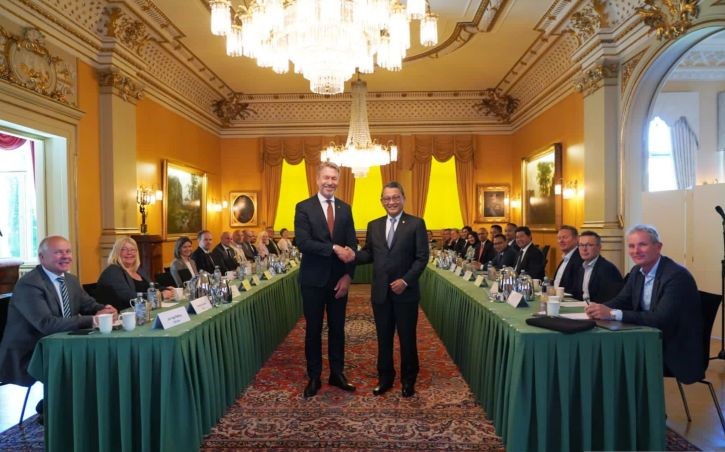Jakarta – The Indonesian government offered the Norwegian government funding to grow the energy industry, particularly oil and gas, in order for Indonesia to fulfill its energy transition and carbon neutrality agenda in the future.
“Norway possesses energy-related technology and experience. This is the source of Indonesia and Norway’s strong cooperation,” Tutuka Ariadji, Director General of Oil and Gas at the Ministry of Energy and Mineral Resources, stated in a statement issued Thursday in Jakarta.
On June 13, 2022, Indonesia and Norway convened the 9th Indonesia-Norway Bilateral Energy Consultation (INBEC) in Oslo, Norway, to strengthen bilateral cooperation in the energy sector.
Indonesia is excited to learn about the advancement of Carbon Capture and Storage/Carbon Capture, Utilization, and Storage (CCS/CCUS), hydrogen, and offshore wind technologies in Norway, as well as energy financing.
Indonesia also asks Norway to collaborate in order to improve the knowledge of workers at the Ministry of Energy and Mineral Resources, as well as in the field of standards for training programs and industry.
Ariadji stated that the Indonesian government elaborated on the development of power, renewable energy, as well as CCS/CCUS projects and opportunities in the country, during the meeting. Following that, Norway emphasized its experience in lowering methane emissions as well as absorbing and injecting carbon dioxide.
“From Norway, Indonesia learns a lot about Carbon Capture and Storage/Carbon Capture, Utilization, and Storage (CCS/CCUS).” According to Ariadji, “Indonesia has tremendous potential for carbon dioxide storage, with roughly two gigatonnes in depleted oil and gas reservoirs and around 9.68 gigatonnes in the South Sumatra and West Java basins.”
Several research and preparations for CCS/CCUS are being conducted by the ministry, including Tangguh EGR/CCUS, Gundih CCUS/CO2- Enhanced Gas Recovery (EGR), and Sukowati CO- Enhanced Oil Recovery (EOR).
From 2014 to 2015, Indonesia also developed a National Center of Excellence for CCS/CCUS, which was initiated by the Bandung Institute of Technology (ITB) and the Royal Norwegian Embassy to support the Gundih CCUS pilot project.
Indonesia is now preparing a ministerial rule to assist the development of CCS/CCUS while also incorporating stakeholders, including European countries, to seek feedback and enhance the draft that has been created.
Ariadji stated that Norway was considered by Indonesia as an old friend who was always eager to share experiences and skills in the energy sector.
The two countries not only foster government-to-government cooperation, but also business-to-business collaboration, such as Pertamina and Aker Solution’s partnership in the joint industrial project for the development of membrane subsea system technology.



